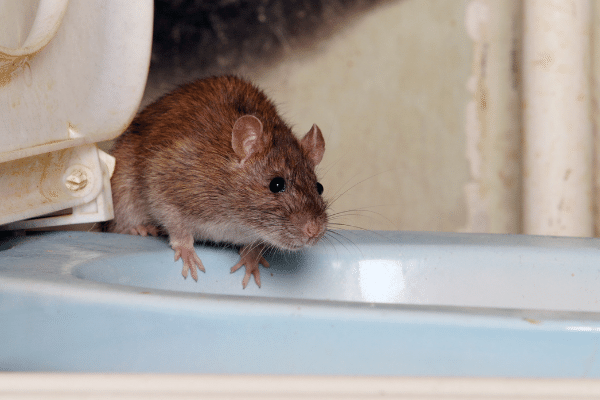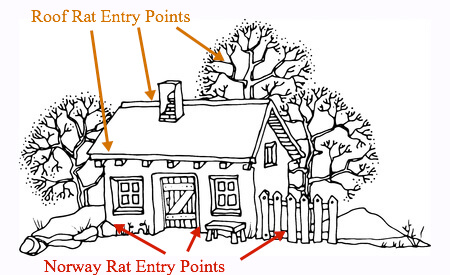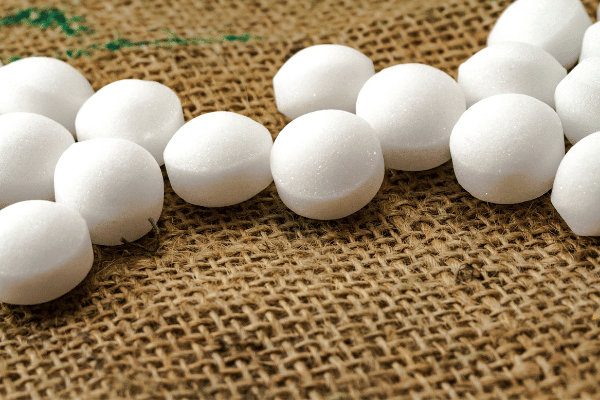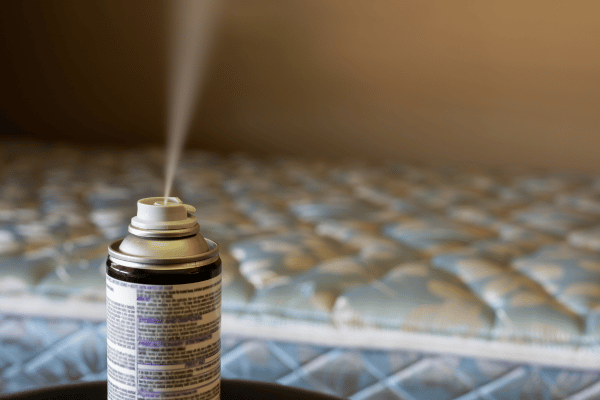- Home
- Trapping Rats
- Rat Repellents
Rat Repellents
This post may contain affiliate links so I earn a commission.
Doing a quick Internet search on rat repellents will bring up all sorts of allegedly successful concoctions one can create that are supposed to work wonders.
You will even see all sorts of commercial products that promote themselves as miracle workers when it comes to getting rid of rats, but unfortunately, there is no scientific evidence than any of them have any true effect on the rat or expelling it from inside your home.
In fact, some sound as if they have come straight out of a Harry Potter novel and created by a wizard, instead of a realistic method of repelling the rodents.

The two most common rats that are problematic to homeowners are the Norway rat and roof rat, with the main difference being their preference in location for their home.
Norway rats prefer lower elevations and are more likely to reside in basements, cellars or on the ground floor.
Roof rats, on the other hand, are little acrobats and prefer to nest in higher elevated locations, such as in your attic or tree canopies.
Both create the same problems like chewing wiring and are carriers of disease, however, each species are controllable with similar methods, and it isn’t a witch’s brew of strange potions.
The Best Way To Repel Rats
The only tried and true method that works at repelling the rodents and keeping them from taking up residence inside your home is basic – seal up any entranceways allowing the rats’ indoor access.
Since it only takes a dime-sized opening for a small rat to squeeze through, it’s important to inspect the areas around your home to make sure everything is sealed shut.
This includes soffit covers that lead into the attic, areas around pipes leading into the home, windows and doors, vent fans and other openings leading into the roof.

Once you’ve sealed off all the possible ways a rat might get inside and take up residence, you'll have dramatically reduced the chances of rats creating unwanted havoc in your home.
Herbal Repellents
Many herbal products are slated to repel rats.
Although the rodent might dislike the smell or taste at first, none are scientifically proven to work for any length of time....if at all.
It's very doubtful you will find the rat packing up the family and moving out by using any of these remedies.
Besides, a lone rat outdoors without a home or protection becomes food for predators such as owls, hawks and even a dog or cat, so the rat would be putting its own life in jeopardy by leaving the warm confines of your home.
Rat Repellents Using Mint
There are recipes that call for making rat repellent pastes or using essential oils of various mints like peppermint in the area where the rat resides and promote it as being a useful rat repellent.
Unfortunately, about the only thing this is going to do is leave a pleasant smell and perhaps, freshen the rat’s breath if they take a bite.

Rosemary and Sage
Here is another promoted rat repellent that isn’t going to work.
The only thing rosemary or sage is going to be useful for is if the rat happens upon a piece of chicken in the garbage and decides to spice it up a bit with herb sprigs.
Lavender
Unless the rat has an aversion to bad smells or needs to wear a potpourri bag around its neck like people did in the Middle Ages to ward off bad humors, the only thing lavender is going to do is leave a pleasant smell in the area of the rat’s home.
Mothballs
Mothballs have been promoted to repel everything from rats, raccoons, squirrels and possibly even Dracula from entering your home, but they don’t work as a rat repellent.

There are some real dangers in using mothballs and they can kill your child or pet, if they get into the wrong hands.
The main ingredient contained in mothballs is naphthalene, and the substance is a proven carcinogen with scientific studies showing it causes cancer in humans.
Therefore, using mothballs might run you from your home due to the stinky smell, but the rats are likely to stay put and wave goodbye as you leave.
Other Promoted Rat Repellents
Human Hair
Though creating little bags of human hair and hanging them around will work if you have a deer problem because deer are naturally afraid of humans, there is no evidence showing it works at repelling rats.
Rats have been living side-by-side with humans for thousands of years and are used to and unafraid of our scent.

Ultrasonic Sound Devices
It is true that rats are wary creatures and will scurry away from sounds, but it doesn’t take long for them to become accustom to the frequency and basically ignore it while they get about their business.
Scientific studies show these machines are a waste of money because they don’t work.
Flashing Light Devices
Like devices that make noise, at first the rat will be wary of the new light feature, but will soon become accustom to the new addition to its home.
They are more likely to gather their friends for a disco party than leave the premises due to the flashing light show.
Commercial Rat Repellents
Walking down the pest-control aisle of your local home improvement store shows multiple products promoting their rat repelling qualities and state how safe they are to use.
However, they are a waste of money and potentially dangerous.
Quickly reading the ingredients will show they contain many of the herbal products that don’t work such as rosemary, eucalyptus or peppermint.
Quickly looking at a safety data sheet on the ingredients show the products contain substances such as crystalline silica and limestone, which are toxic if inhaled.
Although the rat might be momentarily repelled, commercial products are not likely to have long-lasting effects.
Overall
Although homemade and commercial repellents sound like an easy way to get rid of rats, unfortunately they just don't work.
In order to successfully remove rats from your home and keep them from coming back you'll need to seal off all entry points, then trap them from your home.
Snap-traps are the cheapest, easiest and most effective rat traps on the market.
Use multiple traps set in heavily traveled areas and before you know it your rat problems will be eliminated.



